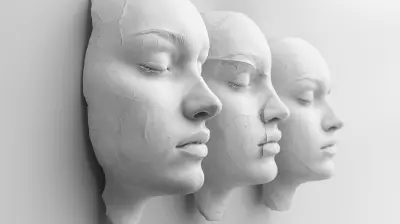Understanding the Core Principles of Cognitive Behavioral Therapy
26 June 2025
There’s a reason why Cognitive Behavioral Therapy (CBT) is often the first line of treatment for depression, anxiety, and a whole bunch of other emotional and psychological challenges. It’s like the Swiss Army knife of psychotherapy. But what exactly makes it so effective? And why does it seem to pop up everywhere when you search for mental health solutions?
Let’s dive into the core principles of CBT and unwrap why it works, how it helps, and what makes it such a valuable ally in our mental health journey. Don’t worry—this won’t be a dry lecture. Think of it like a casual talk over coffee with someone who’s genuinely excited to share insights that could change your life.
What Is Cognitive Behavioral Therapy (CBT), Anyway?
Before jumping into the nuts and bolts, let’s break down what CBT actually is. At its simplest, CBT is a form of talk therapy that focuses on the connection between your thoughts, feelings, and behaviors.Here’s the basic idea: Our thoughts affect how we feel, and how we feel affects the way we act. So if you can learn to identify and change unhelpful thoughts, you’ll start to feel better and act more in line with your goals.
Sound simple? Well, in theory, yes—but in practice, it takes a bit of work. Think of CBT like rewiring an old house—you’re not changing the structure (you), just the faulty circuit (your thought patterns).
Core Principle #1: Thoughts, Feelings, and Behaviors Are Connected
At the heart of CBT is the cognitive model, which says your thoughts, emotions, and behaviors are all deeply intertwined.Let’s say you wave at a friend across the street and they don’t wave back. You might think, “They’re mad at me,” which makes you feel anxious or sad, and leads you to avoid them next time. But what if they just didn’t see you?
That initial thought (even if it's incorrect) led to an emotional response and a behavior that followed. In CBT, you’d work to catch that thought, challenge it, and replace it with something more balanced, like, “Maybe they didn’t see me. I’ll check in with them later.”
📌 Key takeaway: The way we think matters. Those automatic thoughts? They’re powerful, but they’re not always right.
Core Principle #2: It’s Not the Situation, It’s the Interpretation
Ever notice how two people can go through the same experience and have totally different reactions? One person gets stuck in traffic and shrugs it off with some music. Another person flips out and feels the entire day is ruined.CBT says that it’s not the situation itself causing your emotional pain—it's how you interpret it. These interpretations are shaped by past experiences, beliefs, and assumptions you've picked up over time.
So the goal? Learn to spot when your brain is jumping to conclusions or catastrophizing (i.e., expecting the worst) and challenge those unhelpful thoughts.
💬 CBT teaches you to ask, “Is that thought actually true? Is there another way to see this?”
Core Principle #3: Automatic Thoughts Can Be Rewritten
We’ve all got this running inner narrator, chattering away all day. A lot of the time, we don’t even realize how negative or self-critical it is. These are called automatic thoughts—they pop up out of nowhere, especially when we’re stressed.CBT helps us become aware of those thoughts and pause before accepting them as truths.
Here’s how that might look:
- Thought: “I messed up that presentation. I’m such a failure.”
- CBT Reframe: “I stumbled a bit, but I did prepare well and shared valuable points. Everyone makes mistakes.”
It sounds simple, sure. But the real magic happens when you practice this often enough that your brain starts doing it on its own. Like building muscle memory for emotional resilience!
Core Principle #4: Behavior Change Strengthens Thought Change
Here’s the twist: Changing behavior can also change thoughts.Let’s say you have social anxiety and constantly think, “People will judge me.” CBT might encourage small behavioral experiments—like initiating a short conversation with a coworker—to test that belief.
And through these actions, you might begin to realize, “Hey, that wasn’t so bad. Maybe people aren’t judging me as much as I assume.”
🔁 It’s a feedback loop—actions influence thoughts, which influence emotions, and so on.
This principle is why CBT often includes “homework”—tasks you work on between sessions. It’s like going to the gym for your mind. The more reps you do, the stronger your new mental patterns become.
Core Principle #5: Identify and Challenge Cognitive Distortions
Cognitive distortions are like funhouse mirrors—they warp how we see the world and ourselves. And we all fall into their trap once in a while.Some common distortions:
- All-or-Nothing Thinking: “If I’m not perfect, I’m a total failure.”
- Overgeneralization: “Nothing ever goes right for me.”
- Mind Reading: “He didn’t text back. He must be angry.”
CBT helps you catch these mental glitches and call them out. You learn to replace distorted thinking with more balanced, realistic thoughts.
Think of it like being your own mental detective, gathering evidence and questioning assumptions.
Core Principle #6: Present-Focused and Goal-Oriented
While some therapies dig deep into childhood and past trauma (and there’s absolutely a place for that), CBT tends to be more focused on the here and now.That doesn’t mean your past is ignored—but the bulk of the work is about what’s going on in your life today and what small steps can move you forward.
Most CBT treatment plans are structured and time-limited. You work with your therapist to set specific, achievable goals. It’s like having a roadmap—you’re not just talking, you’re working toward something.
🎯 That practical, action-based vibe is what makes CBT so appealing to many.
Core Principle #7: CBT Is Collaborative and Educational
One of the coolest things about CBT is that it aims to make you your own therapist. It’s not about someone just telling you how to think or feel—it’s a team effort.You and your therapist work together to understand patterns, identify challenges, and come up with strategies that fit your unique story.
CBT sessions often include education—about how anxiety works, how depression affects thinking, how different habits feed into emotional cycles. The more you understand, the more empowered you feel.
🥽 Think of it like learning how to use scuba gear before diving deep into your own mental waters. You’re equipped and confident instead of feeling overwhelmed.
Who Can Benefit from CBT?
Short answer? Practically everyone.CBT has been proven effective for:
- Anxiety disorders (social anxiety, panic disorder, phobias)
- Depression
- Post-traumatic stress disorder (PTSD)
- Obsessive-compulsive disorder (OCD)
- Eating disorders
- Substance abuse
- Sleep issues
- Chronic pain
- Stress management
- Even everyday struggles like procrastination or low self-esteem
You don’t have to be in crisis to benefit from CBT. It’s a toolkit for better living, even on your best days.
What Does a CBT Session Look Like?
A typical CBT session lasts about 45–60 minutes. You and your therapist might:- Review your week
- Discuss any specific problems that came up
- Identify and challenge unhelpful thoughts
- Practice new coping skills
- Set homework for the next session
There’s usually a balance between talking through challenges and actively working on strategies.
You’re not just venting—you’re learning.
Why CBT Works: The Science Behind It
CBT isn’t just popular because it feels nice. There’s a mountain of research backing it up.Studies consistently show that CBT is as effective—or more effective—than medication for many mental health conditions. And the best part? Its effects tend to last. Because you’re not just getting temporary relief, you’re building long-term skills.
Neuroscience even supports CBT—brain scans show changes in activity in areas linked to emotional regulation after CBT treatment. It’s literally changing how your brain processes thoughts and emotions.
🧠 CBT doesn’t just help you understand your mind—it reshapes how your mind works.
Common Misunderstandings About CBT
Let’s clear up a few myths:- “CBT is just positive thinking.”
Nope! It’s about realistic thinking, not sugarcoating things.
- “It ignores your past.”
Not true. It focuses on current patterns but considers how they developed.
- “It’s too structured for me.”
Actually, many people find structure comforting, especially when emotions feel chaotic.
- “You need a therapist to do CBT.”
While guidance helps, many self-help books and online programs use CBT principles effectively.
Tips to Get Started with CBT
Curious about trying CBT? Here are some steps you can take:- Look for a licensed CBT therapist (search databases like Psychology Today)
- Check out CBT-based workbooks (like “The Feeling Good Handbook” by Dr. David Burns)
- Start journaling your thoughts and challenging them
- Try CBT apps like MoodKit, CBT-i Coach, or MindShift CBT
Even small steps can make a difference.
And remember—like learning any new skill, CBT takes practice. But the mental freedom it offers? So worth it.
Final Thoughts
Understanding the core principles of Cognitive Behavioral Therapy is like being handed a manual for your own mind. It gives you the tools to stop spiraling thoughts, calm emotional storms, and start living with more clarity and confidence.Will it solve all your problems overnight? No. But it can help you change the way you face them—and that’s powerful.
Whether you’re dealing with anxiety, depression, or just trying to upgrade your mindset, CBT offers a proven, practical path forward. It teaches you that you don’t have to believe everything you think.
And sometimes, that one idea can open the door to a whole new way of living.
all images in this post were generated using AI tools
Category:
Cognitive Behavioral TherapyAuthor:

Ember Forbes
Discussion
rate this article
2 comments
Soliel Pace
This article succinctly captures the essence of Cognitive Behavioral Therapy (CBT), highlighting its focus on the interplay between thoughts, emotions, and behaviors. Understanding these core principles not only enhances therapeutic outcomes but also empowers individuals to foster meaningful change in their lives.
December 6, 2025 at 5:50 AM

Ember Forbes
Thank you for your insightful comment! I'm glad to hear that the article effectively conveys the impact of CBT on personal growth and therapeutic success.
Mika Gibson
Great insights on CBT principles! Very informative article.
July 5, 2025 at 4:34 AM

Ember Forbes
Thank you! I'm glad you found the article informative.


